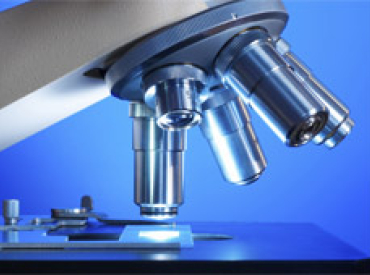-
Male Hair Loss Conditions
- Male Pattern Hair Loss
- Other Conditions
-
Male Hair Loss Treatments
- Hair Loss Treatments – A Guide
-
Patterns of Hair Loss
- Receding Hairline
- Thinning Crown
- General Thinning
-
Hair Loss Success Stories
- Hair Regrowth Photo-Gallery
-
Female Hair Loss Conditions
- Hair Loss in Women - Guide
- Female Pattern Hair Loss
- Telogen Effluvium (TE)
- Diffuse Thinning | Chronic TE
- Alopecia Areata
-
Female Hair Loss Treatments
- Female Hair Loss Treatments - A Guide
- Belgravia High-Strength Minoxidil
- Hair Vitalics For Women
- Clinical Treatment Therapy
-
Hair Loss Success Stories
- Women’s Hair Regrowth Photo-Gallery
-
Back
-
Male Hair Loss Conditions
- Male Pattern Hair Loss
- Other Conditions
-
Male Hair Loss Treatments
- Hair Loss Treatments – A Guide
-
Patterns of Hair Loss
- Receding Hairline
- Thinning Crown
- General Thinning
-
Hair Loss Success Stories
- Hair Regrowth Photo-Gallery
-
Back
-
Female Hair Loss Conditions
- Hair Loss in Women - Guide
- Female Pattern Hair Loss
- Telogen Effluvium (TE)
- Diffuse Thinning | Chronic TE
- Alopecia Areata
-
Female Hair Loss Treatments
- Female Hair Loss Treatments - A Guide
- Belgravia High-Strength Minoxidil
- Hair Vitalics For Women
- Clinical Treatment Therapy
-
Hair Loss Success Stories
- Women’s Hair Regrowth Photo-Gallery
The Psychological Effects of Alopecia Hair Loss
More than just hair loss
Alopecia is classed as a chronic inflammatory disease which affects hair follicles, causing the attached hairs to fall out. The condition is neither painful, nor life threatening, although some people report irritation of the skin in affected areas. Some also have problems with dust getting into their eyes because of the loss of protective eyelashes.
Because the condition develops without warning, the hairloss can be shocking and distressing. The British Medical Journal conducted studies of people with alopecia concluding, “the experience of alopecia is psychologically damaging, causes intense emotional suffering, and leads to personal, social, and work related problems in some people.”
Alopecia, anxiety and depression
Hair plays a large part in self-image, particularly for women. Studies suggest that around 40% of women experiencing alopecia-related female hair loss encounter marital problems “as a direct result.” 63% believe that they also run into problems at work through hair loss.
Researchers at the University of California looked into alopecia and mental health, discovering, “those with alopecia may be at higher risk for developing a serious depressive episode, anxiety disorder, social phobia, or paranoid disorder.”
A number of celebrities with Alopecia Areata in its various forms have spoken out about their experiences with depression as a result of their hair loss. These include England rugby player Heather Fisher, TV presenter and actor Gail Porter and actor Jackie Nguyen, pictured here.
Whilst the message of Alopecia awareness and acceptance is crucial, it is also important for those experiencing autoimmune alopecia to understand that they are not alone in having these types of negative feelings. Counselling, such as cognitive behavioural therapy (CBT) may be helpful in coming to terms with the issue, and peer support via online forums or meet-up groups can also provide a valuable outlet to share the ups and downs of life with Alopecia Areata, for both men and women.
Diagnosis and treatments
As with any hair loss condition, it is absolutely essential to get a full diagnosis from an expert. Once the actual condition has been identified, appropriate hair loss products can then be explored.
At Belgravia personalised courses of Alopecia Areata treatment are available for over 16s with the scalp-only phenotype. For the more extreme forms, and for children under 16 years of age with any form of the condition, there are currently no reliable treatment options, though many pharmaceutical companies are racing to develop effective topical, oral and injectable hair loss solutions for all forms of Alopecia Areata. It is currently estimated that these may start to become available via prescription from 2021.

The Belgravia Centre
The Belgravia Centre is a world-renowned group of a hair loss clinic in Central London, UK. If you are worried about hair loss you can arrange a free consultation with a hair loss expert or complete our Online Consultation from anywhere in the world for home-use treatment.
View our Hair Loss Success Stories, which includes the world's largest gallery of hair growth photos and demonstrates the level of success that so many of Belgravia's patients achieve.



